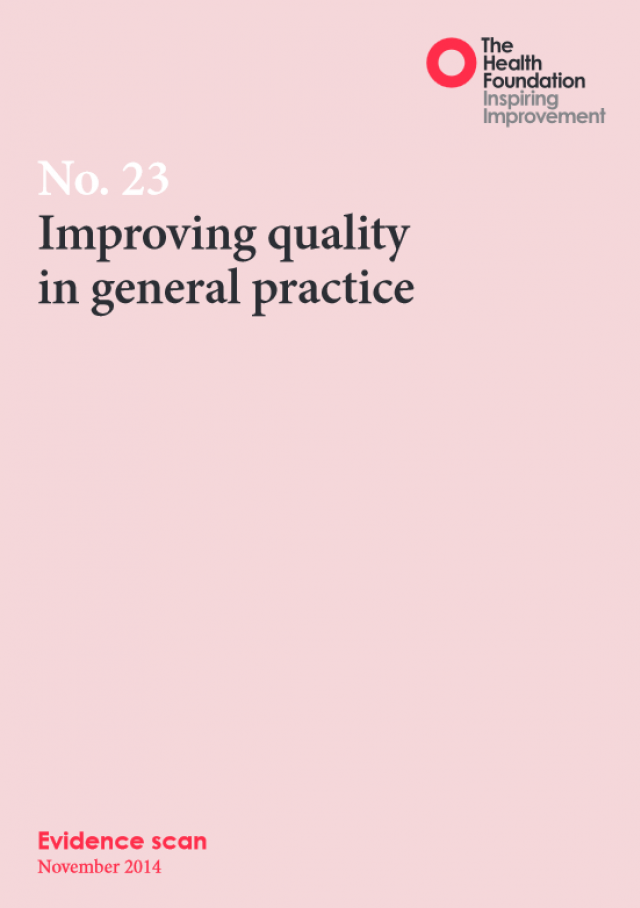Improving quality in general practice Evidence scan
November 2014
About 1 mins to read

Key points
- There is no single definition of quality in general practice.
- An appropriate conceptualisation of quality depends on what the information will be used for.
- Contextual factors such as location, policy priorities, discipline, demographics and measurement approaches all influence what is valued as good quality.
- However, there is a lot of consistency within frameworks about quality in health care, with a focus on patient experience, clinical effectiveness and safety.
- A question remains about whether these three domains are the most important for general practice, and whether other components such as generalism and holistic care need to be included.
This evidence scan was initially commissioned to inform attendees at the National Summit on Quality in General Practice, held at the Royal College of General Practitioners on 31 July 2014. The theme of the day was 'Sustaining and improving the quality of general practice'.
The scan is divided into three parts:
- Part 1 explores how quality should be defined, drawing upon literature from leading thinkers and organisations in health care and quality improvement.
- Part 2 summarises empirical evidence on what the public think of general practice, and the features they think are important in good quality general practice care.
- Part 3 compiles empirical research about interventions that have been tested to improve the quality of general practice care
Further reading
Work with us
We look for talented and passionate individuals as everyone at the Health Foundation has an important role to play.
View current vacanciesThe Q community
Q is an initiative connecting people with improvement expertise across the UK.
Find out more

